Royal Society of NSW Awards for 2020
The Council of the Royal Society of New South Wales is pleased to announce its Awards for 2020 at the 1289th Ordinary General Meeting, held online on the evening of 9 Decermber 2020.
These include the Cook Medal, which is the Society’s highest honour, awards for research and scholarly excellence, and awards which recognise substantial service to the Society.
The award winners are listed below, together with links to information about the awards and their recipients.
The Cook Medal
James Cook Medal — Scientia Professor Richard Bryant AC
Awards for Research Excellence
Clarke Medal and Lecture — Distinguished Professor Michelle Leishman
Edgeworth David Medal — Associate Professor Brett Hallam
History and Philosophy of Science Medal — Professor Alison Bashford FRSN
Liversidge Lecture — Professor Richard Payne FRSN
Poggendorff Lectureship — Professor Angela Moles FRSN
Jak Kelly Award — Mr Matthew Donnelly
Royal Society of NSW Scholarships — Mr Sajad Razavi Bazaz, Mr Daniel Fox, and Ms Phillipa Specker
Awards for Service to the Society
Royal Society of NSW Medal — Emerita Professor Mary O’Kane AC FRSN
Royal Society of NSW Citation — Emeritus Professor Heinrich Hora FRSN
James Cook Medal
Scientia Professor Richard Bryant AC FASSA FAA FAHMS
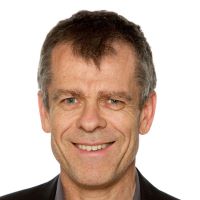 The James Cook Medal, the Society’s highest honour, is awarded from time to time for outstanding contributions to both science and human welfare, in and for the Southern Hemisphere.
The James Cook Medal, the Society’s highest honour, is awarded from time to time for outstanding contributions to both science and human welfare, in and for the Southern Hemisphere.
Professor Richard Bryant, of the School of Psychology of UNSW (Sydney), has made many seminal advances in the diagnosis, treatment, and identification of neural, genetic, and cognitive markers of post-traumatic psychopathology. His work has challenged the pre-existing notions of acute psychological response to trauma leading to major policy and practice shifts internationally in relation to how trauma survivors are managed. Professor Bryant has translated his findings into improving the mental health of communities throughout the Southern Hemisphere (as well as many trauma-affected countries in the northern hemisphere).
Awards For Research Excellence
Clarke Medal and Lecture (Botany)
Distinguished Professor Michelle Leishman
 The Clarke Medal is awarded each year for distinguished research in the natural sciences, conducted in Australia and its territories, in the fields of botany, zoology, and geology (considered in rotation). For 2020, the medal has been awarded in botany.
The Clarke Medal is awarded each year for distinguished research in the natural sciences, conducted in Australia and its territories, in the fields of botany, zoology, and geology (considered in rotation). For 2020, the medal has been awarded in botany.
Distinguished Professor Michelle Leishman, of the Department of Biological Sciences of Macquarie University, is internationally recognised for her work in plant ecology. In particular, her studies are directed towards understanding the success of invasive plant pathogens, vegetation responses and adaptation to climate change, plant conservation, and facilitating resilient urban green spaces. She has a number of active research programs which include development of a database for greening urban space, studying invasive plants and pathogens and climate vegetation response and adaptation to global climate change.
Edgeworth David Medal
Associate Professor Brett Hallam
 The Edgeworth David Medal is awarded annually for distinguished research by a young scientist under the age of 35 years for work undertaken mainly in Australia or contributing to the advancement of Australian science.
The Edgeworth David Medal is awarded annually for distinguished research by a young scientist under the age of 35 years for work undertaken mainly in Australia or contributing to the advancement of Australian science.
In less than six years from completion of his PhD, Scientia Fellow Brett Hallam of the School of Photovoltaic and Renewable Energy Engineering at UNSW (Sydney) has established himself as a national and international leader in the highly competitive field of crystalline silicon photovoltaics, particularly in the areas of light induced degradation, hydrogen passivation and defect engineering. Although he has made a major impact on photovoltaics globally, this is in addition to his profile and leadership in crystalline silicon photovoltaics in Australia. Professor Hallam’s research addresses one of the key challenges in sustainability, that is, access to clean electricity. His work on hydrogen passivation to avoid light induced degradation of solar cells means that the cost of photovoltaics can be reduced greatly, increasing the competitiveness of this form of electricity compared with that generated by fossil fuels.
History and Philosophy of Science Medal
Professor Alison Bashford FRSN FAHA FBA FRHistS
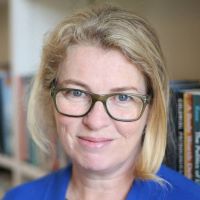 The Society’s History and Philosophy of Science Medal is awarded annually to recognise outstanding achievement in the History and Philosophy of Science, especially the study of ideas, institutions, and individuals of significance to the practice of the natural sciences in Australia.
The Society’s History and Philosophy of Science Medal is awarded annually to recognise outstanding achievement in the History and Philosophy of Science, especially the study of ideas, institutions, and individuals of significance to the practice of the natural sciences in Australia.
Professor Alison Bashford, an ARC Laureate Fellow from the Faculty of Arts and Social Sciences at UNSW (Sydney), is one of Australia's most eminent historians, recognised internationally for her ground-breaking and transformative historical studies of the biomedical and environmental sciences. Her scholarly distinction is recognised by fellowships of both Australian and British academies. Professor Bashford has greatly enlarged and raised our understanding of past conceptions of race, population and place in Australia and the world. She has brought the history of the human and environmental sciences into the scope of world history. She has written five acclaimed books and numerous other published works in which she reveals connections of science and medicine with national projects and global ambitions. Further, her extensive and various studies have reoriented the history of science toward the southern hemisphere and the Pacific, showing us how natural knowledge has been assembled in Australia and the region.
Liversidge Lecture
Professor Richard Payne FRSN FRACI FRSC
 The Liversidge Lecture is awarded at intervals of two years for the purpose of encouragement of research in Chemistry. It was established under the terms of a bequest to the Society by Professor Archibald Liversidge MA LLD FRS, who was Professor of Chemistry in the University of Sydney from 1874 to 1907, and who was one of the Council members who sponsored the Society's Act of Incorporation in 1881.
The Liversidge Lecture is awarded at intervals of two years for the purpose of encouragement of research in Chemistry. It was established under the terms of a bequest to the Society by Professor Archibald Liversidge MA LLD FRS, who was Professor of Chemistry in the University of Sydney from 1874 to 1907, and who was one of the Council members who sponsored the Society's Act of Incorporation in 1881.
The research of Professor Richard Payne, of the School of Chemistry of the University of Sydney, focusses on the development of technologies for the chemical synthesis of therapeutic peptides and proteins. These technologies have facilitated the preparation of numerous proteins bearing modifications that enhance activity and stability, critical features in the quest to develop efficacious protein therapeutics. His approaches have also been combined with recombinant methods to generate large therapeutic proteins and even antibodies—methods that have been widely adopted in the laboratories of international academics and pharmaceutical companies alike. He has developed synthetic proteins that are amongst the most potent antithrombotic agents ever reported, and which have an enormous therapeutic potential for thrombo- embolic disorders. Professor Payne has been awarded numerous prizes and medals including the 2014 RSNSW Edgeworth David Medal and the H G Smith and A J Birch Medals of the RACI.
Poggendorff Lectureship
Professor Angela Moles FRSN
 The Poggendorf Lecture is awarded periodically for research in plant biology and more broadly agriculture.
The Poggendorf Lecture is awarded periodically for research in plant biology and more broadly agriculture.
Professor Angela Moles, of the School of Biological, Earth and Environmental Sciences of UNSW (Sydney), is an international leader in the field of large-scale evolutionary ecology. In particular she studies the processes that shape global patterns and the way plants grow reproduce and interact with animals. She has a highly cited publication record and the innovation and quality of her work has been recognised by numerous awards.
Jak Kelly Award
Mr Matthew Donnelly
 The Jak Kelly Award was created in honour of Professor Jak Kelly (1928–2012), who was Head of Physics at University of NSW from 1985 to 1989, was made an Honorary Professor of University of Sydney in 2004, and was President of the Royal Society of NSW in 2005 and 2006. Its purpose is to encourage excellence in postgraduate research in physics. The award is supported by the Royal Society of NSW and the Australian Institute of Physics, NSW branch. The winner is selected from a short list of candidates who made presentations at the most recent Australian Institute of Physics, NSW branch postgraduate awards meeting.
The Jak Kelly Award was created in honour of Professor Jak Kelly (1928–2012), who was Head of Physics at University of NSW from 1985 to 1989, was made an Honorary Professor of University of Sydney in 2004, and was President of the Royal Society of NSW in 2005 and 2006. Its purpose is to encourage excellence in postgraduate research in physics. The award is supported by the Royal Society of NSW and the Australian Institute of Physics, NSW branch. The winner is selected from a short list of candidates who made presentations at the most recent Australian Institute of Physics, NSW branch postgraduate awards meeting.
Mr Matthew Donnelly, a PhD Candidate at UNSW (Sydney), is researching monolithic donor structures in silicon and their application in spin-based quantum computing. In particular, he is focussed on using 3D fabrication techniques to precisely control tunnel rates and other parameters critical to the operation of spin qubits.
Royal Society of New South Wales Scholarships
The Royal Society Scholarships, valued at $500, together with a complimentary year of Associate Membership of the Society, are awarded annually in order to acknowledge outstanding achievements by young researchers in any field of science. Applicants must be enrolled as research students in a university in either NSW or the ACT on 1 January in their year of nomination.
For 2020, three RSNSW Scholarships have been awarded to:
- Mr Sajad Razavi Bazaz — University of Technology Sydney
- Mr Daniel Fox — Australian National University
- Ms Phillipa Specker — UNSW (Sydney)
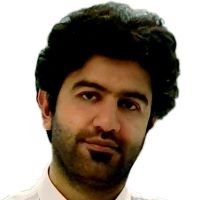 In his PhD, Mr Sajad Razavi Bazaz studies the use of 3D printing for microfluidics. Microfluidics is a science which allows the manipulation of fluid samples, typically in the range of microlitres, within networks of channels ranging from tens to hundreds of micrometres. Microfluidic systems are becoming increasingly promising tools for the advancement of chemical and biological research with evident benefits. Today, 3D printing technologies have gained significant traction, being dubbed a third industrial revolution. Due to the expanding use of microfluidic systems in laboratories, 3D printing has emerged as an alternative method to traditional costly fabrication processes. Mr Razavi Bazaz has developed a new method for the fabrication of microfluidic devices and has validated it. He and his colleagues have established a start-up company to develop 3D printed microfluidic devices for selective sperm selection for the IVF market.
In his PhD, Mr Sajad Razavi Bazaz studies the use of 3D printing for microfluidics. Microfluidics is a science which allows the manipulation of fluid samples, typically in the range of microlitres, within networks of channels ranging from tens to hundreds of micrometres. Microfluidic systems are becoming increasingly promising tools for the advancement of chemical and biological research with evident benefits. Today, 3D printing technologies have gained significant traction, being dubbed a third industrial revolution. Due to the expanding use of microfluidic systems in laboratories, 3D printing has emerged as an alternative method to traditional costly fabrication processes. Mr Razavi Bazaz has developed a new method for the fabrication of microfluidic devices and has validated it. He and his colleagues have established a start-up company to develop 3D printed microfluidic devices for selective sperm selection for the IVF market.
 Mr Daniel Fox is studying the clinically important, but much neglected, human and foodborne pathogen, B Cereus, and has discovered that enterotoxins produced by this bacterium can activate cytosolic innate immune inflammasome sensors which mediate host defence against pathogens. The sensing of pathogens by inflammasome sensor proteins results in the assembly of the inflammasome complex. Mr Fox has identified a toxin NHE as a novel activator of the NLRP3 inflammasome because it triggers formation of a lytic pore that promotes the efflux of potassium ions. He has also found it mediates the killing of cells from multiple lineages and hosts. It acts synergistically with another toxin secreted by the same organism, HBL.
Mr Daniel Fox is studying the clinically important, but much neglected, human and foodborne pathogen, B Cereus, and has discovered that enterotoxins produced by this bacterium can activate cytosolic innate immune inflammasome sensors which mediate host defence against pathogens. The sensing of pathogens by inflammasome sensor proteins results in the assembly of the inflammasome complex. Mr Fox has identified a toxin NHE as a novel activator of the NLRP3 inflammasome because it triggers formation of a lytic pore that promotes the efflux of potassium ions. He has also found it mediates the killing of cells from multiple lineages and hosts. It acts synergistically with another toxin secreted by the same organism, HBL.
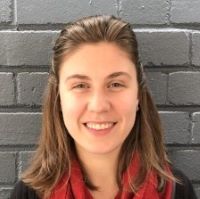 Ms Phillipa Specker is investigating the role of emotional regulation in the management of post-traumatic stress disorder (PTSD) in refugees. Refugees represent one of the largest at-risk groups in the development of PTSD, with current treatments being much less efficacious compared to other trauma-exposed groups. Research suggests that emotion regulating strategies that refugees used to manage stress may be critically important in their recovery from PTSD. In the first part of her PhD program, she found that there were individual differences in the types of emotion regulation strategies that refugees used to manage stress and that those refugees who were better able to concurrently use cognitive reappraisal and emotional suppression had fewer PTSD symptoms. Currently, she is testing a novel experimental paradigm to investigate whether providing refugees with adaptive emotion regulation skills training will reduce PTSD symptomology and ultimately improve well-being.
Ms Phillipa Specker is investigating the role of emotional regulation in the management of post-traumatic stress disorder (PTSD) in refugees. Refugees represent one of the largest at-risk groups in the development of PTSD, with current treatments being much less efficacious compared to other trauma-exposed groups. Research suggests that emotion regulating strategies that refugees used to manage stress may be critically important in their recovery from PTSD. In the first part of her PhD program, she found that there were individual differences in the types of emotion regulation strategies that refugees used to manage stress and that those refugees who were better able to concurrently use cognitive reappraisal and emotional suppression had fewer PTSD symptoms. Currently, she is testing a novel experimental paradigm to investigate whether providing refugees with adaptive emotion regulation skills training will reduce PTSD symptomology and ultimately improve well-being.
Awards for Service to the Society
Royal Society of NSW Medal
Emerita Professor Mary O’Kane AC FRSN FTSE Hon FIEAust
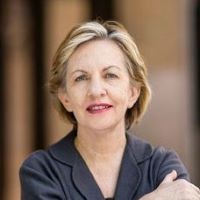 The Society’s Medal is awarded from time to time to a member of the Society who has made meritorious contributions to the Society’s administration, organisation, and endeavours.
The Society’s Medal is awarded from time to time to a member of the Society who has made meritorious contributions to the Society’s administration, organisation, and endeavours.
Emerita Professor Mary O’Kane was appointed as the first New South Wales Chief Scientist and Engineer in 2008 and remained in the position until 2018. Prior to that she was Vice-Chancellor and President of the University of Adelaide from 1996 to 2001. From 1994 to 1996 she was Deputy Vice-Chancellor (Research) and Professor of Electrical Engineering at the University of Adelaide. From 1989 to 1993 she was Dean of the Faculty of Information Sciences and Engineering at the University of Canberra.
Early on, as the New South Wales Chief Scientist and Engineer, she established a relationship between her office and the Royal Society of New South Wales which, in essence, provided the Society with access to the State Government. She was a strong supporter of the Society, providing funding for the publication of the Journal and Proceedings. Later she provided funding and hosted the Four Societies Lecture when it was the Royal Society's turn to organise this event. She also instigated an awards mechanism for the Society, by which the Science Deans of NSW and ACT universities came together under her chairmanship to make recommendations for the Society’s prizes and scholarships. She advocated for the Society in government and also was a strong supporter of the Royal Society of New South Wales and Four Academies Forum held annually at Government House, Sydney.
Royal Society of NSW Citation
Emeritus Professor Heinrich Hora FRSN FAIP FInstP
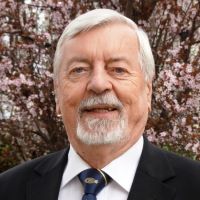 The Royal Society of NSW Citations are awarded to a Member or Fellow of the Society who has made significant contributions to the Society, but who has not been recognised in any other way. A maximum of three Citations may be awarded in any one year.
The Royal Society of NSW Citations are awarded to a Member or Fellow of the Society who has made significant contributions to the Society, but who has not been recognised in any other way. A maximum of three Citations may be awarded in any one year.
Emeritus Professor Heinrich Hora, of the UNSW (Sydney), has served the Royal Society of New South Wales with distinction over many years. Professor Hora is a former Vice-President and Councillor of the Society and is a current member of the Fellows and Members Assessment Committee, to which he has made significant contributions over several years. In that role, he has helped ensure that the most talented and qualified individuals across many fields join the ranks of the Fellowship of the Society. In addition to his extensive service to the Society, Professor Hora is a noted theoretical physicist who has made and continues to make significant contributions to solid state physics, the optical properties of plasma, and non-linear dynamics with the application of lasers to the production of nuclear fusion energy.

